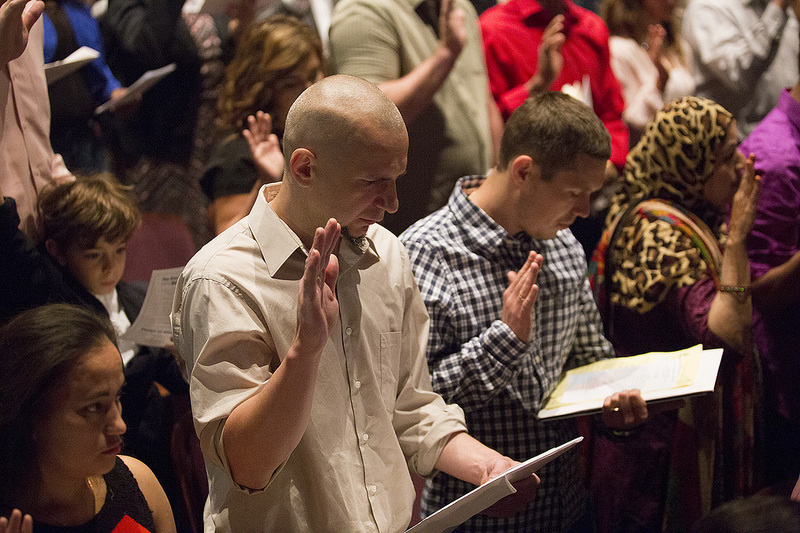| If you’re upset that the Utah Republican Party is requiring its candidates to sign a pledge of loyalty to the party platform (or risk having their names read aloud as dissenters at the state convention), imagine how you would feel if the party were requiring you, as a voter, to sign a pledge before casting a ballot. That’s what Virginia’s Republican Party had planned to do to voters in the state’s presidential primary earlier this year. Party leaders changed |
| | their minds at the last minute, but not before a federal judge ruled that the pledge was legal. When it comes to politics, I’m guessing Americans aren’t fond of loyalty oaths. They bring back the smells of the early 1950s, the Un-American Activities Committee and all that. Those memories are bad enough, even if many of us didn’t actually live through the days when the fears of communism were real. But there are practical matters at stake, here. Shouldn’t we elect people who can think for themselves; who may be of a particular philosophical bent, but who can react to problems, or perhaps even compromise to reach a solution? If doing so would get your name read aloud in shame at the convention, who would ever agree to a less than ideologically pure solution to a problem? Let’s be clear: Utah and Virginia have different motivations for their pledges. In Virginia, the voter oath seemed to be meant exclusively as a way to keep Donald Trump from winning the primary. Unlike in Utah, Virginia’s Republican primary is open to all voters. But before the party backpedalled, the plan was to have everyone sign where it said, “My signature below indicates that I am a Republican.” In Utah, state party leaders want to control access to local ballots and maintain ideological purity. In a state where the party dominates all aspects of politics, party leaders believe a new law allowing people to get on a primary ballot by collecting voter signatures might tempt the state’s few Democrats to run as Republicans. More likely, it might empower less conservative Republicans. Two different states, two different circumstances; but they are tied together by a thin string of irony. People like Mitt Romney have been working hard to get the national Republican Party to gain control of its nominating process in order to thwart Trump. Presumably, Virginia’s loyalty pledge might have helped that cause. But the same Mitt Romney has expressed opposition to efforts by the Utah GOP to strengthen its grip over nominations. "Convention/caucus systems exclude so many people," Romney wrote in an email to former Utah governor and Health and Human Services Secretary Mike Leavitt two years ago. They “rarely produce a result that reflects how rank and file Republicans feel." The email subsequently was made available to KSL. So, which is it? Should the party control its nominating process or leave it to the rank-and-file? Ironies can be messy. This one is situational. On a national level, a Republican victory in November is far from a sure thing. Party leaders naturally want a nominee with the best chance of winning, and so the spotlight is on how the party chooses that person. In Utah, on the other hand, the general election is meaningless for most offices. Republicans nearly always get elected. The way to ensure robust political involvement, and a move away from control by the party’s more extreme elements, is to loosen the nominating process. It boils down to this: If a party opens things up too much, it runs the risk that a popular TV personality who doesn’t care what the party stands for might co-opt the system and get nominated. If it becomes too insular, it stops representing the people and grants too much deference to the extremes, where the most motivated political activists tend to live. Parties are mostly private organizations, which means they enjoy the right of free association. But competition is the great tempering device. In a competitive political marketplace, asking candidates to pledge fidelity to the entire party platform might backfire and cost votes. In Utah, the Republican Party doesn’t seem to run much risk of that. |


 RSS Feed
RSS Feed

